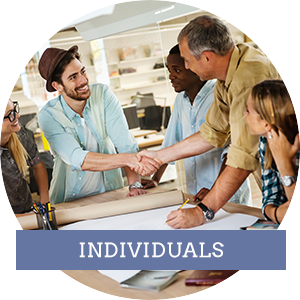Using Stress & Difficulty to Increase Resiliency & Positivity
Tuesday, December 5, 2017
Are you stressed out? Does your life feel overwhelming? Or does it just feel like life is out of balance? Sometimes our lives can feel difficult, and sometimes very difficult things happen to us so that it can feel like it is hard to get perspective. And with the recent violent events nationally (i.e., Las Vegas, New York City, etc.) and natural disasters such as Hurricane Irma, Hurricane Harvey, Hurricane Maria and forest fires in California, additional stress and anxiety is experienced even if it is not you experiencing the event.
Resiliency and mindfulness are important tools in dealing with stress and difficulty. They shift your focus away from what is happening and what it is doing to you (i.e., more of a victim approach) to looking at your relationship to the event and how you are growing from it. In other words, given the outer event, what is your inner experience? What emotions are arising? What is your mindset/interpretation of the event?
Resiliency is defined as your ability to bounce back and flourish after a difficult event better off than you were before the event, learning from it. Mindfulness helps you form helpful patterns that cause greater resiliency and helps you to avoid or move away from those unskillful patterns, like worry, resentment, self blame, blame of others, or negativity. So mindfulness is a foundation for resiliency. Positivity, a term coined by Barbara Frederickson who is a psychologist who did research on the effects of positivity, is also a key foundation supporting resiliency.
An example illustrates the relationship between resiliency, mindfulness and positivity. We recently were right in Hurricane Irma’s path. As you can imagine, this created a great deal of stress. Mindfulness, positivity and resiliency helped me to have a proper relationship to this stress, to see that the stress inside was causing me to pay attention because there truly was a dangerous situation emerging. This was appropriate and right sized. I used mindfulness to support responding vs. emotionally reacting. An emotional reaction would have lead to either overreacting or not paying enough attention to the situation in order to be prepared. Also, the ability to think more clearly as a result of the calmer mind through the use of mindfulness allowed us to come up with creative alternatives, to effectively put them into action, to ask for help as needed and to think more positively about what is possible. Inherent in resiliency and positivity is also healthy relationships with others. The appropriate responses over time and connections with others who are healthy enabled us to gain support needed and created opportunities for compassion.
Mindfulness, an approach which involves using the breath, your 5 senses or a kindness phrase to nonjudgmentally bring you back to the present moment, activates your parasympathetic nervous system for a baseline of ease and peacefulness. The cooling, steadying influence of the PNS helps you think clearly and avoid hot-headed actions that would harm you or others. It quiets the mind and fosters tranquility, which supports insight about the situation and greater wisdom. This also causes the physical brain to change, increasing the ability to think positively, to reframe the negative. Over time, through training and shaping your mind and brain, you can even change what arises, increasing what’s positive and decreasing what’s negative. It takes time and effort to clear old structures in the brain and build new ones. This starts to build resiliency as difficulty arises.
So the next time difficulty arises, think in terms of mindfulness and positivity as a foundation of resiliency. Focus on your breath or other anchor to the present moment, don’t believe everything you think, challenge negative thoughts so that you can see the situation clearly and when you have calmed down, generate creative ideas and put them into action.
Working with a coach can be very helpful in increasing your skill in these areas. Please contact Redirections, Inc. (Liesl Piotti at 727-215-2039 or lpiotti@mindspring.com) to work with one of our coaches in building resiliency, positivity and mindfulness.




